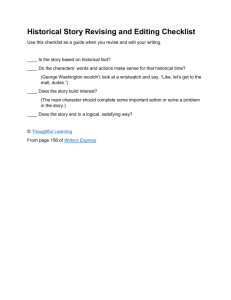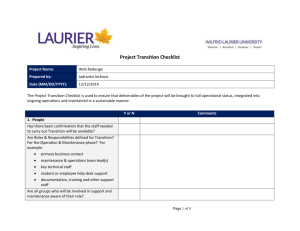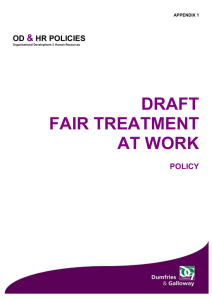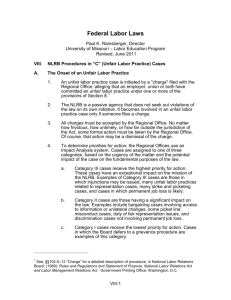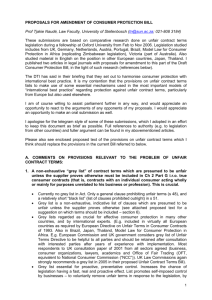Checklist: Bribery Act 2010: what it means for your business
advertisement
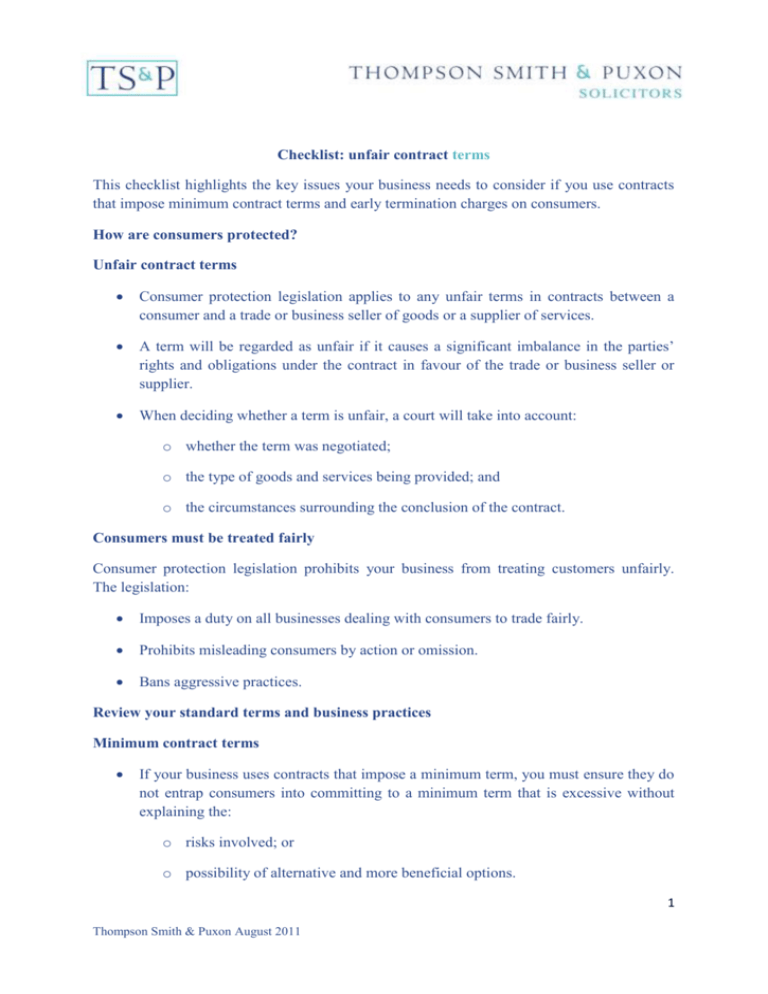
Checklist: unfair contract terms This checklist highlights the key issues your business needs to consider if you use contracts that impose minimum contract terms and early termination charges on consumers. How are consumers protected? Unfair contract terms Consumer protection legislation applies to any unfair terms in contracts between a consumer and a trade or business seller of goods or a supplier of services. A term will be regarded as unfair if it causes a significant imbalance in the parties’ rights and obligations under the contract in favour of the trade or business seller or supplier. When deciding whether a term is unfair, a court will take into account: o whether the term was negotiated; o the type of goods and services being provided; and o the circumstances surrounding the conclusion of the contract. Consumers must be treated fairly Consumer protection legislation prohibits your business from treating customers unfairly. The legislation: Imposes a duty on all businesses dealing with consumers to trade fairly. Prohibits misleading consumers by action or omission. Bans aggressive practices. Review your standard terms and business practices Minimum contract terms If your business uses contracts that impose a minimum term, you must ensure they do not entrap consumers into committing to a minimum term that is excessive without explaining the: o risks involved; or o possibility of alternative and more beneficial options. 1 Thompson Smith & Puxon August 2011 Your business must clearly notify consumers that they are entering into an agreement with a minimum term, both when speaking to them and in any written information you provide. You should consider whether there are any circumstances where a consumer should be able to terminate the contract early without incurring adverse financial consequences. Automatic renewal terms If your contracts impose automatic renewal terns, your business must provide reasonable means for your consumers to exit the automatic renewal terms fairly. This option must be communicated in plain and intelligible language. Early termination charges Your business must ensure that charges for early termination include an appropriate discount for accelerated receipt of payment. Notice provisions Notice provisions should be drafted so that consumers are able to serve notice on the most obvious party. Your contract is likely to be unfair if it states that notice will only be valid if given to an agent unless it is obvious for the consumer to do so. Parties Your contracts must clearly identify the contracting party, the supplier of services (if different from the contracting party) and any agent, in clear and intelligible language. Credit collection methods Your business must not engage in any aggressive or unfair trading practices when attempting to recover outstanding payments. For example, you should avoid threatening: Legal proceedings when there is no intention of issuing proceedings. To report or reporting information of debts in dispute to credit reference agencies as a means to secure payment. To report or reporting information to credit reference agencies without informing individuals of their: o right to access records kept about them by credit reference agencies; and o ability to have incorrect entries corrected. 2 Thompson Smith & Puxon August 2011 Know your customers Your business must have in mind the behaviour of your average consumer and not create a business model or a standard form contract that is designed to exploit the average consumer’s naivety for financial gain. More information If you have any questions about the content of this checklist, please contact Mary Anne Fedeyko Director and Head of Corporate and Commercial Direct Dial: 01206 217 049 Email: mfedeyko@tsplegal.com Mary Anne specialises in corporate, corporate finance and commercial law and has wide experience of company restructuring, mergers and acquisitions. She has exceptional technical expertise in large industry acquisitions and contracts. She acts for clients in local industry and commerce as well as those with parent companies based outside the UK – in Canada, the United States and Europe, and as such is very often involved in multi-jurisdictional transactions. The content of this checklist is for general information only and does not constitute legal advice. It states the law as at August 2011. We recommend that professional advice is obtained on any particular matter. We do not accept responsibility for any loss arising as a result of the use of the information contained in this checklist. 3 Thompson Smith & Puxon August 2011




